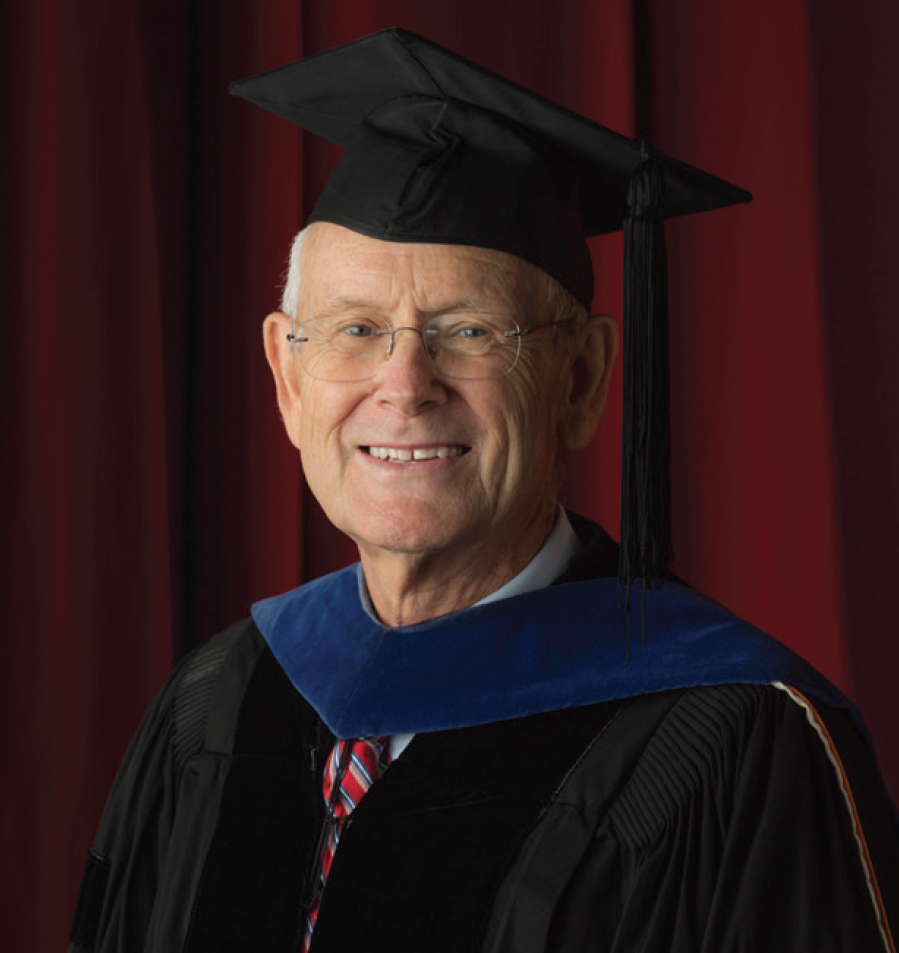Bob Frye, 1939-2016
The distinguished professor of English at TCU was the university’s first women’s basketball coach.

Bob Frye, 1939-2016
The distinguished professor of English at TCU was the university’s first women’s basketball coach.
TCU’s first women’s basketball coach and a beloved English teacher for 44 years, Bob J. Frye was known for grading in green ink because it was “less menacing.” His personal touch earned admiration across campus and throughout higher education, including recognition as a Minnie Stevens Piper Professor in 1994.
Frye also gained national attention for exchanging letters with his students. “From 1978-2002, I wrote a personal letter to the students and they each wrote me one every week,” he told TCU Magazine in a Summer 2016 feature on TCU’s seven Piper Professors.
“The letters were ungraded but required, our only criterion being that they be worth the reader’s time and energy to peruse,” he told the magazine. “I wrote over 400 of them and received some 6,000 student letters, all of which I still retain.”
Frye, TCU’s Cecil and Ida Green Distinguished Emeritus Tutor, died Nov. 2, 2016. He was 77.
“Dr. Frye was the embodiment of TCU,” said Andrew Schoolmaster, dean of the AddRan College of Liberal Arts. “He represented the very best of the teacher-scholar model and never stopped working to improve his craft of teaching and promoting student learning. He was a role model for all TCU faculty.”
Born in Plainview, Frye was proud of his West Texas heritage and known for his integrity, faith, hard work and humility. He attended Wayland Baptist College in Plainview on a basketball scholarship and earned a BA in English before earning MA and PhD degrees from the University of Tennessee in Knoxville.
In 1966, Frye joined the English faculty at TCU, where he taught, researched and published on 18th century British literature, American literature, Southwest American literature, composition and satire. He also taught numerous honors courses from 1967 to 2010, including nine years (1987-96) in the honors humanities sequence. In 2003, he retired from full-time work but continued teaching until 2010.
“He was a role model for all TCU faculty.”
Andrew Schoolmaster, dean of the AddRan College of Liberal Arts
In 1974, Frye was asked to be TCU’s first women’s varsity basketball coach — starting from scratch with no scholarships, uniforms or even basketballs and a mere $835 operating budget. His wife, Alice Swanner Frye ’88, helped him piece together uniforms and transport the team in two TCU station wagons. (Read his recollections in the Summer 2001 issue)
He often came in at the last minute as the “sixth man” for the honors program — stepping up to serve as a literature specialist in 1987 when a colleague died, co-teach a new honors seminar when a colleague became ill in 1996 and lead an honors colloquium when another colleague died in 2006.
“He felt like he was always ready to come in when needed,” said close friend Richard Enos, the Lillian Radford Chair of Rhetoric and Composition and fellow Piper Professor. “I remember him telling me about times he would get up at 4:30 in the morning to finish grading papers. He sacrificed a lot, but he loved it. I never once heard him complain about anything that was done to help the students.”
In his more than four decades of teaching Frogs, Frye amassed numerous prestigious honors, including the Texas Professor of the Year award from the Carnegie Foundation for the Advancement of Teaching in 1996 and the Frances Hernández Teacher-Scholar Award from the Conference of College Teachers of English of Texas in 2013.
“I think of myself as a student, as just the oldest student in class.”
Bob Frye
The Bob & Alice Frye Scholarship, intended for Honors College students, was announced in 2015. Other TCU accolades include the Chancellor’s Award for Distinguished Teaching in 1992, TCU Honors Professor of the Year award in 1981 and the TCU Alumni Association’s 2007-08 Honorary Alumnus Award — which Enos said was among Frye’s most meaningful honors. “That’s the ultimate validation from the students,” he said. “I know that meant so much to him.
Whenever Enos meets anyone with a connection to TCU’s English department, Frye’s name always comes up. “They could tell he was sincere about helping students. He would do the little things. He made extensive commentary on their writing. “He and his wife, Alice, would have the classes over to breakfast at their house,” Enos said. “He did all the things that showed how much he cared for them, and when they know the teacher cares, students will respond.”
In a Winter 2002 TCU Magazine interview, Frye described teaching as “a ministry in that sense of being a service to the students. I think of myself as a student, as just the oldest student in class.
“I see students as classmates, not in a touchy-feely sort of way, but in the sense that we’re all engaged in an intellectual enterprise,” Frye said in the article. “And my job is to equip them the best I possibly can to really think, to think better than they have, and I am also working on that myself.”
Frye is survived by his wife of 59 years, Alice, whom he often called his “TCU roommate”; daughters Cindy Frye Collins ’84 and her husband, Chuck, of Knoxville, Tenn., and Brenda Frye Faxel ’86 and her husband, Ralph, of Friendswood, Texas; grandchildren John Collins, Mattie Collins, Sarah Faxel and Drew Faxel, a junior at TCU; and brother Jerry K. Frye of Nacogdoches, Texas.

Your comments are welcome
Comments
Related reading:
Features
Starpoint School’s Special Education
At age 50, the on-campus lab school is still giving students a chance to shine.
Features
The Magnificent Seven
TCU’s seven active Piper Professors share the challenges and triumphs of educating Horned Frogs over the decades.